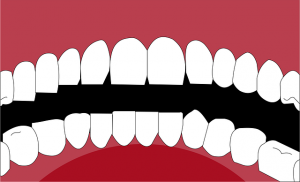Teeth grinding, also known as bruxism, is a common condition that affects many people worldwide. It is estimated that up to 31% of adults and 15% of children grind their teeth at night. Teeth grinding can have negative effects on oral health, including tooth wear, jaw pain, and headaches. In this article, we will discuss the causes of teeth grinding, its dangers, and natural remedies to prevent it.
What is Teeth Grinding?
 Teeth grinding is the act of clenching or grinding one’s teeth together. It is also known as bruxism in medical terms. There are two types of bruxism: awake bruxism and sleep bruxism. Awake bruxism occurs during the day when a person is awake and conscious, while sleep bruxism occurs during sleep.
Teeth grinding is the act of clenching or grinding one’s teeth together. It is also known as bruxism in medical terms. There are two types of bruxism: awake bruxism and sleep bruxism. Awake bruxism occurs during the day when a person is awake and conscious, while sleep bruxism occurs during sleep.
Causes of Teeth Grinding
There are several factors that contribute to teeth grinding, including stress, anxiety, sleep disorders, and genetics. Stress and anxiety can cause a person to clench their jaw or grind their teeth together unconsciously. Sleep disorders such as sleep apnea can also lead to teeth grinding.
Genetics may also play a role in teeth grinding. Studies have shown that people with a family history of bruxism are more likely to develop the condition themselves.
The Dangers of Teeth Grinding
Teeth grinding can have negative effects on oral health. The constant clenching and grinding can cause tooth wear, which can lead to sensitivity and even tooth loss in severe cases. It can also cause jaw pain and headaches.
If left untreated, teeth grinding can lead to more serious dental problems such as temporomandibular joint disorder (TMJ), which affects the joint connecting the jawbone to the skull.
Identifying the Signs of Teeth Grinding
Common signs of teeth grinding include jaw pain, headaches, worn teeth, and sensitivity. If you suspect that you may be grinding your teeth, it is important to seek professional help to prevent further damage.
Natural Remedies for Teeth Grinding
There are several natural remedies that can help prevent teeth grinding. Avoiding caffeine and alcohol can help reduce stress and anxiety, which can contribute to teeth grinding. Using a warm compress on the jaw muscles can also help relax them.
Practicing good sleep hygiene, such as establishing a regular sleep schedule and avoiding electronic devices before bedtime, can also help prevent teeth grinding.
Practicing Relaxation Techniques
Relaxation techniques such as meditation and yoga can help reduce stress and anxiety, which can contribute to teeth grinding. Incorporating these techniques into daily life can help prevent teeth grinding and improve overall well-being.
Seeking Professional Help
If natural remedies and relaxation techniques do not work, it is important to seek professional help. A dentist may recommend a dental appliance such as a mouthguard to protect the teeth from further damage. Therapy may also be recommended to address underlying stress or anxiety.
Teeth grinding is a common condition that can have negative effects on oral health if left untreated. It is important to identify the signs of teeth grinding and seek professional help if necessary. Natural remedies and relaxation techniques can also be effective in preventing teeth grinding and improving overall well-being.








